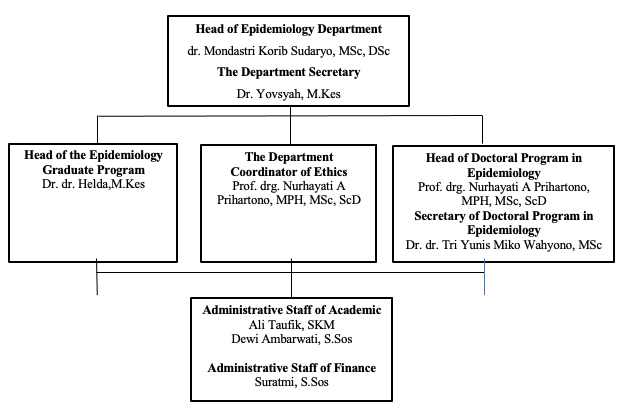Head of the Program: Dr. dr. Helda, M.Kes
The Epidemiology Study Program from the PPSUI (the Universitas Indonesia Postgraduate Programs) has been implemented since October 1995. Epidemiology Graduate Program was officially established with the Decree of the Directorate General of Higher Education, the Ministry of Education and Culture Number 108/DIKTI/Kep/1996 dated April 18, 1996. Furthermore, a Doctoral Program in Epidemiology was also established with the Decree of the Directorate General of Higher Education, Ministry of Education and Culture Number 428/DIKTI/Kep/1998 dated November 24, 1998. Epidemiology Graduate Program has been running the FETP (Field Epidemiology Training Program) since 1980, started from a non-degree program to a degree program, following epidemiological updates at the national and international levels (PAEI (the Indonesian Association of Epidemiologists), JEN (National Epidemiology Network), INCLEN (International Clinical Epidemiology Network), TEPHINET (Training Program in Epidemiology and Public Health Interventions Network)).
Vision
The vision of the Epidemiology Graduate Program is “To be a graduate school in Indonesia that is excellent and internationally competitive in the field of epidemiology and to be a reference in the field of epidemiology.”
Mission
The missions of the Epidemiology Graduate Program are:
1. Improving the quality of Epidemiology Masters in a sustainable manner in accordance with international standards
2. Conducting epidemiological research on an international scale in a sustainable manner
3. Carrying out community engagement through applications of epidemiological science and methods to elevate the public health status
4. Maintaining the achievement of accreditation status by the national accreditation agency
5. Maintaining the achievement of accreditation status by accreditation bodies and improve international rankings.
Objectives of the Program
Objectives of the Epidemiology Graduate Program are:
1. To generate Epidemiology Masters with the following competencies:
a. Able to develop epidemiology*, in the scientific field and the professional practice of epidemiology through research, so as to produce innovative and tested works.
b. (includes principles, methods and applications)
c. Able to solve science problems and health-related events through an inter- or multidisciplinary approach
d. Able to manage research and development that is beneficial to the community and epidemiological science, and able to have national and international recognitions.
2. Encouraging research in the field of epidemiology to:
a. Increase the number of research grants and the quality of research results.
b. The resulting research is presented in national and international conferences/seminars.
c. The resulting research is published in national and international reputable journals and/or obtain intellectual property rights (IPR). Establishing strategic collaborations in the field of education and research with domestic and foreign institutions.
3. Encouraging community engagement activities in the field of epidemiology through:
a. Realization of recommendations and programs addressing health issues by using surveillance methods and other epidemiological principles.
b. Realization of expertise in the field of epidemiology
4. Encouraging the creation of collaborations in the field of epidemiology through:
a. The creation of strategic collaborations to elevate the public health status with national, private and governmental institutions as well as international institutions through applications and methods of epidemiology.
Profile of Graduates
Profiles of Epidemiology Masters are as follows:
• Researcher
• Manager
• Leader
• Advocate
• Educator
Learning Outcomes
Based on the analysis of needs, policies, benchmarks and professional organizations, as well as higher education institutions for public health, the formulation of the Epidemiology Graduate Program learning outcomes is as follows:
1. Able to develop epidemiology (covering principles, methods and applications) in the scientific field and the professional practice of epidemiology through research (C3), so as to create innovative and tested works (C6) (ELO-1)
2. Able to resolve scientific and health issues through inter- or multidisciplinary approach (C6) (ELO-2)
3. Able to manage research and development that is beneficial to the community and the epidemiological science to have national and international recognitions (C6) (ELO-3)
Curriculum Structure
Based on the Learning Outcomes, it is divided into sub-learning outcomes and then classified into courses. An outline of the course structure can be seen below.
Table of the Epidemiology Graduate Program Courses
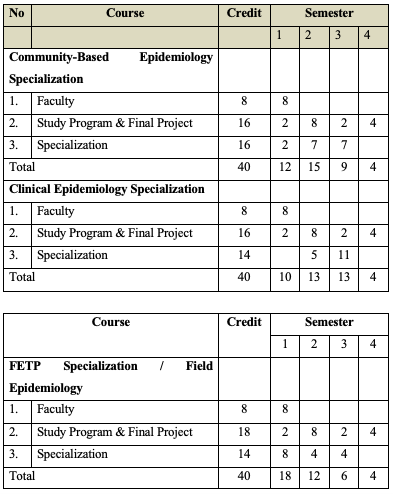
The linkages between courses and learning outcomes can be identified and read in the table below:
Table. The Epidemiology Graduate Program Course Structure
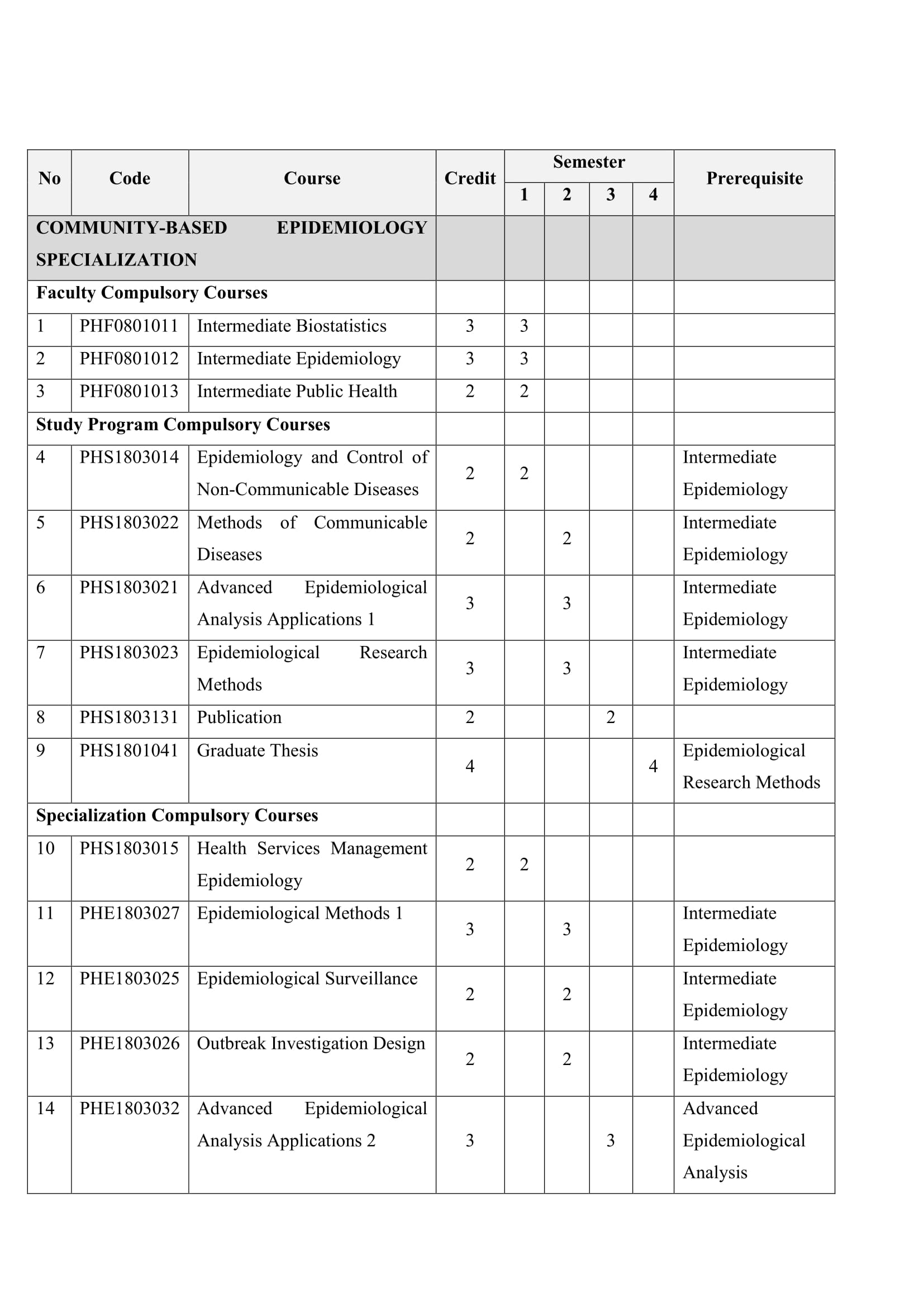
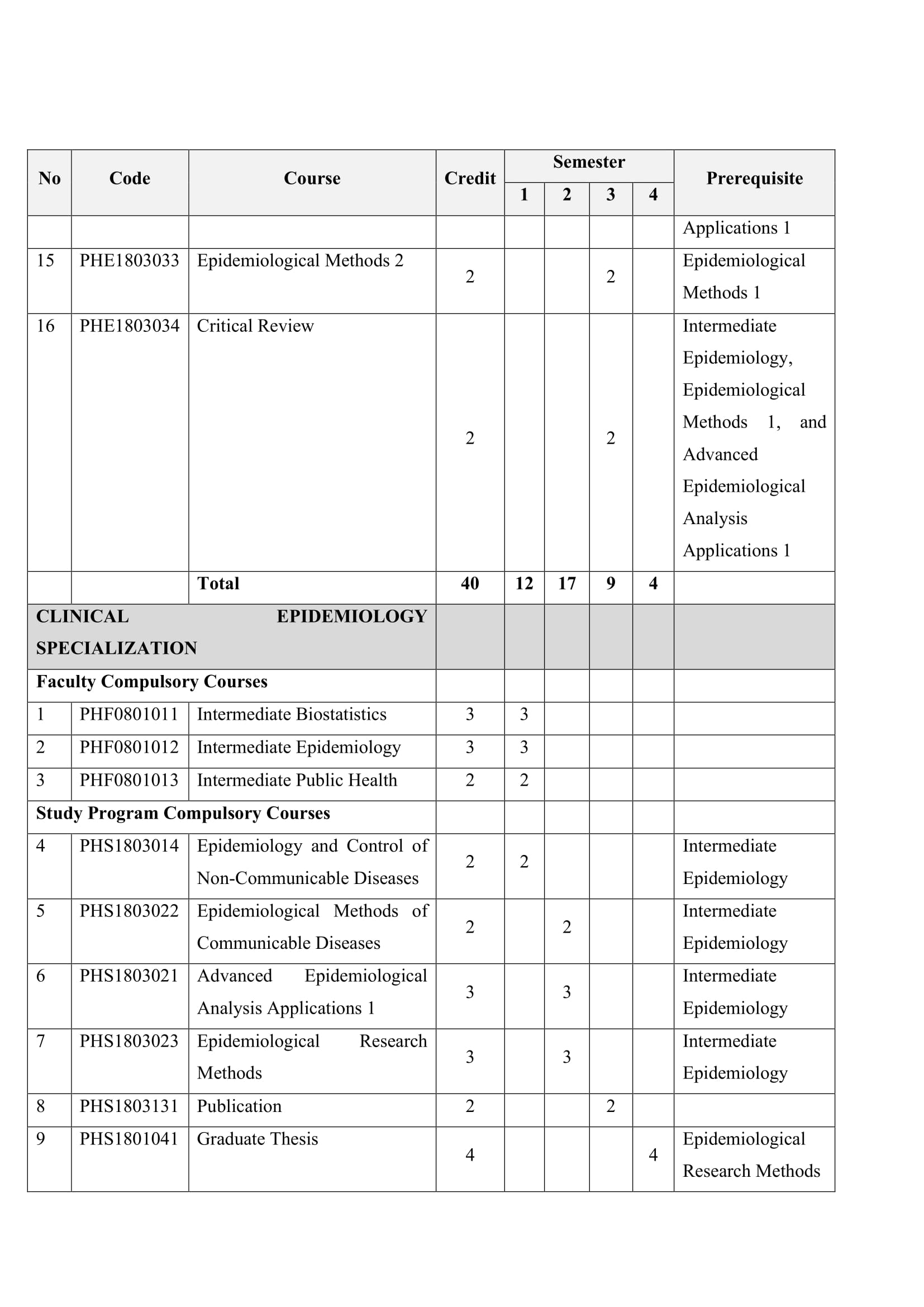
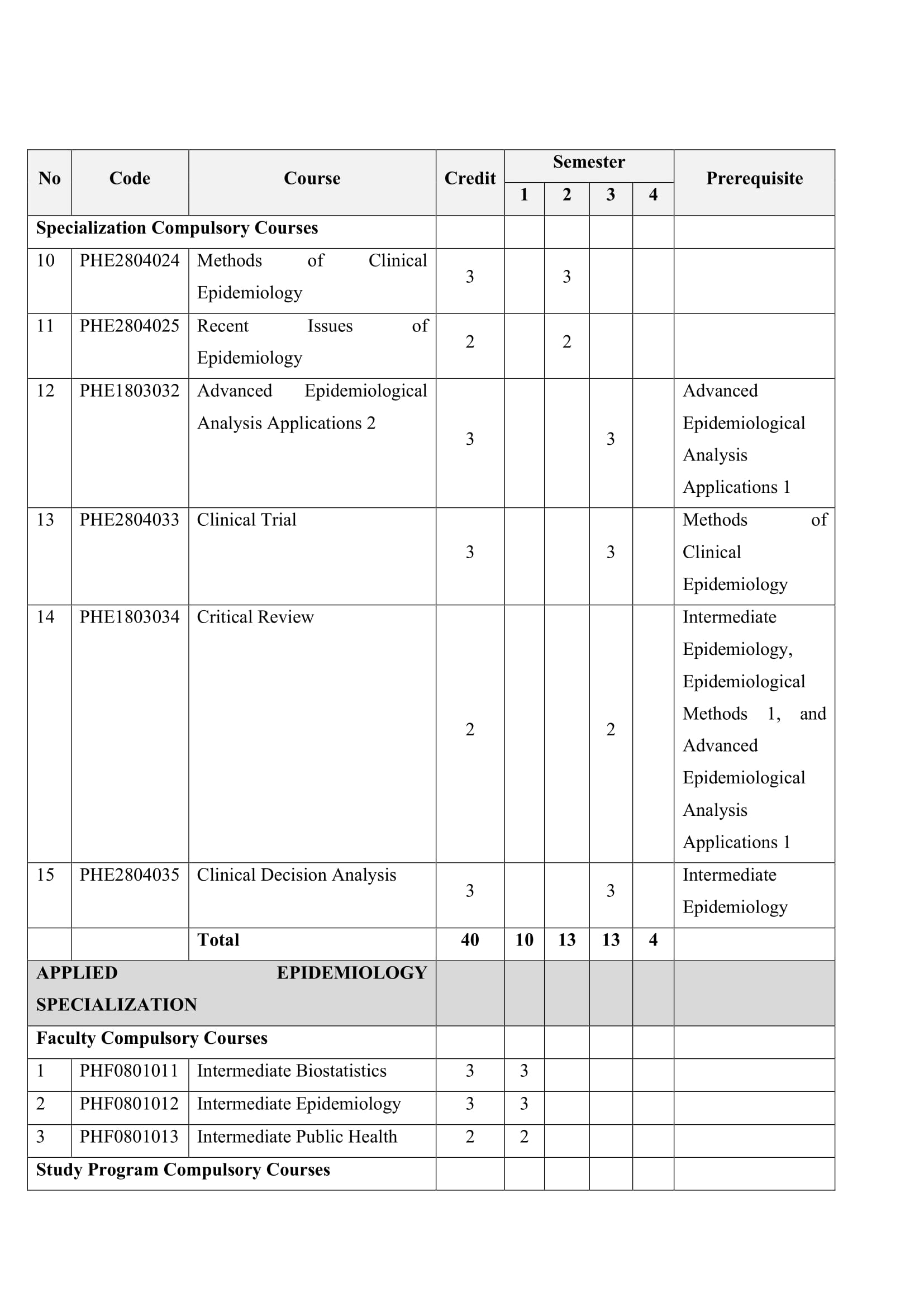
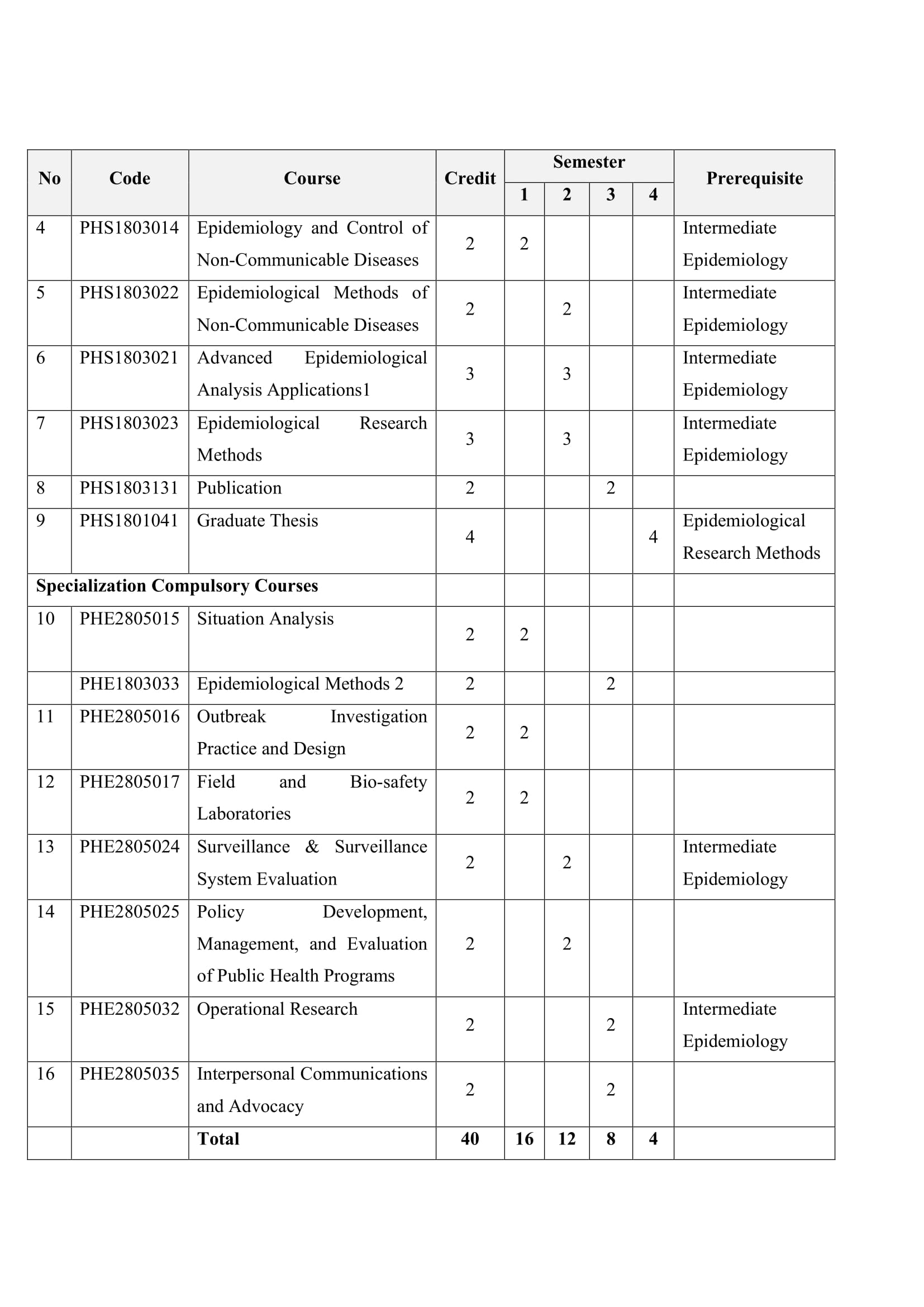
Structure of the Epidemiology Graduate Program Curriculum
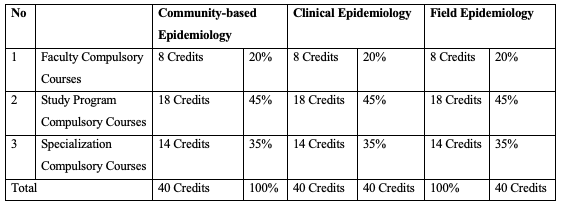
Organizational Structure Of The Epidemiology Graduate Program 2020 – 2025
